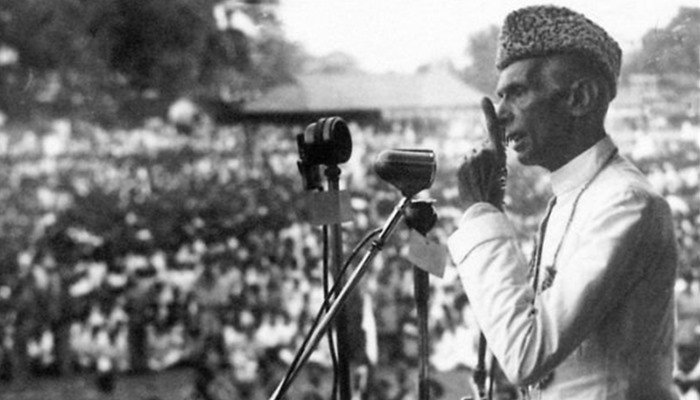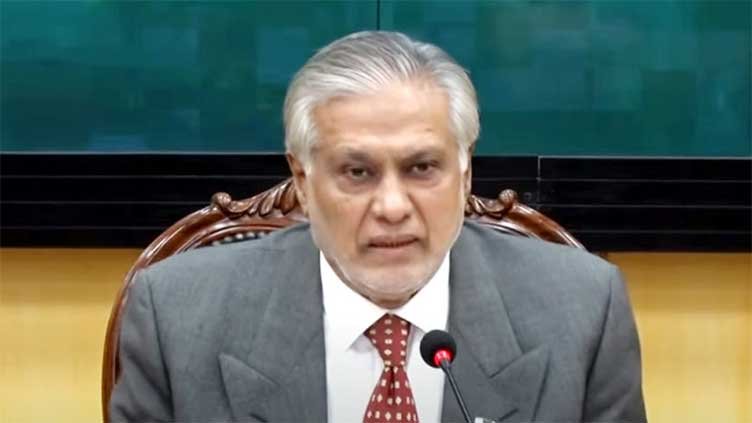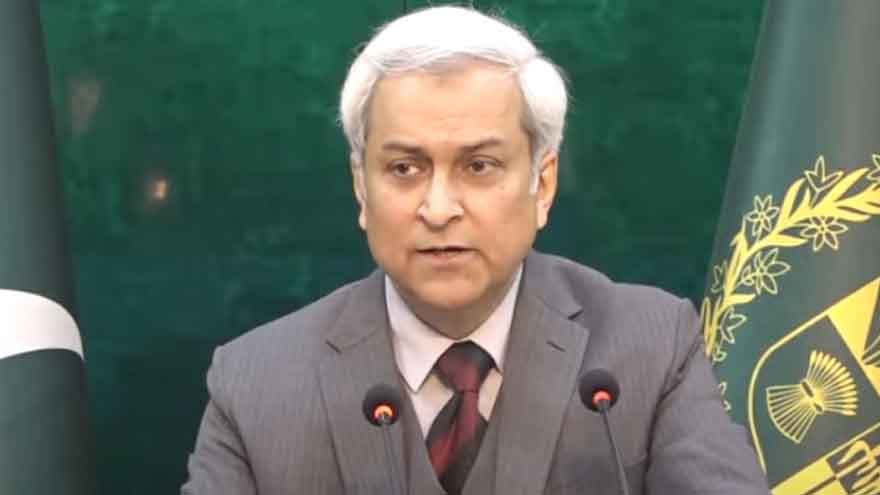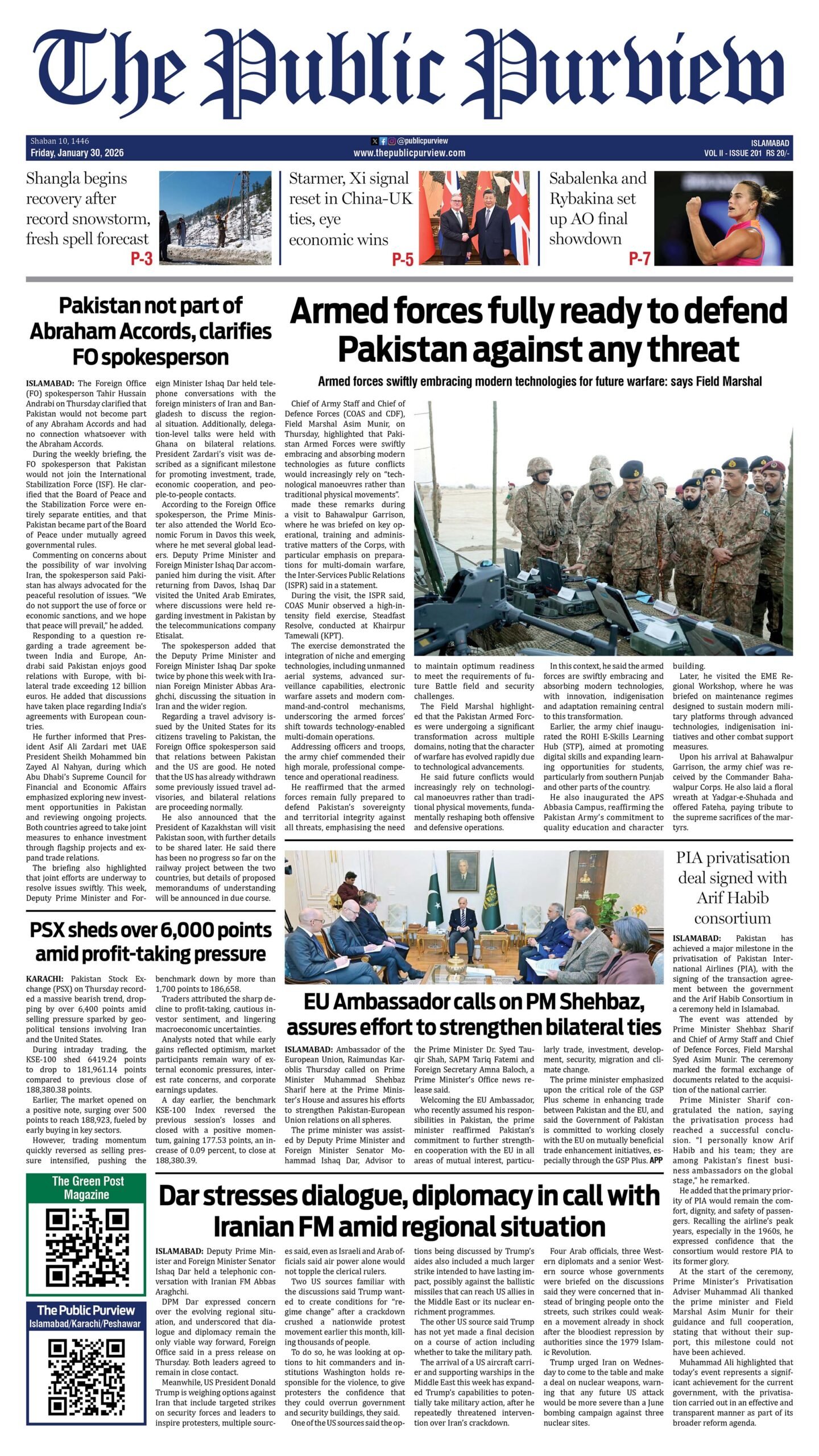
By Muhammad Mohsin Iqbal
Every human being cherishes a dream—an aspiration to possess a home of his own, just as Pakistan cherishes the Quaid-e-Azam legacy, a foundation built with vision, sacrifice, and determination. A dwelling is not merely of brick and mortar but of security, joy, and permanence. A dwelling not merely of brick and mortar but of security, joy, and permanence. A sanctuary where his family may live with dignity, free from external threats. They remain sheltered from the storms of nature and protected from the unpredictable hand of fate.
The head of the household, armed with his determination and sustained by the cooperation of his loved ones, sets out to build his home. He spends his lifetime earnings, his sweat, and his energy upon it. His resources may fall short, and his desires may exceed his reach, yet he does not despair. Instead, he prepares a roadmap with his family. Today, they lay the foundation. Tomorrow, as fortune improves, they will raise its walls higher, polish its beauty, and strengthen its roots.
But the laws of life are immutable. Every man who comes into this world must one day depart, leaving his dreams and his labors to his heirs. The father who built the house must one day return to his Almighty Allah. Then, the surviving family shoulders the responsibility of the house. Vital questions arise: what gaps remain, what weaknesses must be filled, and which member of the family will preserve and enhance the legacy of the father?
Such was the role of Quaid-e-Azam Muhammad Ali Jinnah, the Father of the Nation, left behind the enduring Quaid-e-Azam legacy, which continues to guide generations. He was not an ordinary leader; he was the master architect of a homeland for the Muslims of the Subcontinent. He sacrificed comforts that most men would have jealously guarded. The most successful lawyer of his age, who could have spent his life in affluence either in India or in the grandeur of England, forsook personal ease. He plunged into the raging storms of politics. He stood alone against two formidable adversaries—the British Empire and the Hindu majority leadership—and wrested from their unwilling hands a separate homeland for the Muslims of India. On August 14, 1947, after relentless struggle, sacrifices, and unyielding determination, Pakistan came into existence.
But what a fragile birth it was! This nation did not enter the world in luxury but in chaos and bloodshed. Millions of Muslims migrated across burning plains and hostile frontiers. Countless were slaughtered, abducted, or left destitute. Resources remained scarce. Industries, banks, and administrative structures did not exist. The new state received only 750 million rupees in two staggered installments, while India deliberately withheld essential equipment and resources. Refugee camps overflowed, epidemics spread, and the fledgling government struggled to find offices in makeshift buildings. Yet, despite these insurmountable odds, the Quaid gave us confidence.
He reminded us that Pakistan had come to stay and that it fulfilled destiny. He also stressed that if we followed discipline, unity, and faith, we would rise as a great nation.
Alas, destiny was harsh. The Quaid lived to see his dream take shape but could not nurture it for long. Barely thirteen months after the creation of Pakistan, on September 11, 1948, he departed from this world, leaving the nation orphaned. He had built the foundation of the house and handed us a clear roadmap. His speeches, words, and writings all outlined a future where Pakistan would stand as a modern, progressive, and Islamic democracy. The state would embody both the spirit of Islam and the practical needs of governance.
The question that haunts us to this day is: did we, the inheritors of his legacy, honor the vision of our father? Did we strengthen the house he built, or did we allow it to weaken under neglect, selfishness, and discord? If we measure our progress by his vision, we cannot help but see the gaps that remain unfilled. Our politics became embroiled in personal rivalries. Our institutions weakened under the weight of corruption. Military interventions disrupted democratic continuity. National resources were squandered without thought of posterity.
Even today, when we reflect upon the Quaid’s roadmap, uncomfortable truths confront us. He urged us to rise above sectarianism, yet divisions based on language, ethnicity, and faith continue to haunt us. Discipline, he emphasized, must guide our actions. However, disorder has repeatedly plagued our political and administrative structures. Pakistan was his dream as an economic powerhouse, but decades of missed opportunities, poor governance, and unstable policies have left us struggling with debt, inflation, and dependency on foreign aid.
And yet, all is not lost. Nations, like families, may falter, but they can also redeem themselves. The house that Quaid built still stands. Its foundation remains strong, for he laid it with sacrifice and blood. The roadmap remains before us. The question is whether we have the will to follow it. Can we summon the unity of purpose, the discipline of action, and the faith in ourselves that the Quaid demanded? Can we rise above our petty quarrels and commit ourselves to the greater good?
History teaches us that nations do not fall because of challenges but because of their failure to respond. Pakistan has survived wars, refugee crises, natural disasters, and economic hardships. Its people are resilient; their spirit remains unbroken. If we choose to rekindle the vision of the Father of the Nation, to draw strength from his sacrifices, and to carry forward his unfinished mission, no reason exists why Pakistan cannot claim its rightful place among the great nations of the world.
The father built the house. He entrusted it to us with love and hope. It is now for us—the children of Pakistan—to preserve the Quaid-e-Azam legacy, adorn it, and make it shine as he dreamed. Or will we allow it to crumble under our negligence? The choice is ours, and the time is now.






 Today's E-Paper
Today's E-Paper